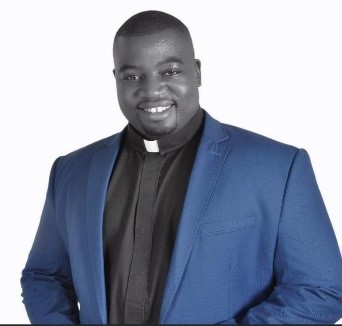In search of the Church against COVID-19:

Opinions encontradas sobre las iglesias virtuales de los zimbabuenses.
Rev. Fr. Tendai Reki Mashayamombe, Zimbabwe, SIGNIS-Africa Rev. Fr. Tendai Reki Mashayamombe, Zimbabwe, SIGNIS-Africa
The new coronavirus (Covid-19) has altered the socioeconomic way of life with far-reaching effects on Christian fellowship. Most believers were used to traditional forms of worship, gathering, worship sessions, and sharing sermons that instilled a sense of hope and deviation from daily struggles. However, the COVID-19 pandemic has moved on; the daily rules and routines and some of these changes will be temporary and others permanent.
Therefore, in pursuit of the Church against COVID-19, Zimbabweans express their views:
"We decided to go digital as part of efforts to contain the paid spread of Covid-19 while also preaching for peace and hope."
"Congregants were encouraged to perform indoor sermons in small numbers to maintain social distance."
"Church leaders are encouraged to be innovative in their preaching of the Word," explains a nun from the eastern part of Zimbabwe.
That has been the case for the Church today in light of Covid-19, which has led to the need for robust and comprehensive virtual communication .
Most Zimbabweans have gone digital as they struggle to fill the void left after physical methods of worship were removed from the scene.
John 6 vs 35 states that "Then Jesus declared:" I am the bread of life. He who comes to me will never go hungry, and he who believes in me will never be thirsty.
Father Emmanuel Ribeiro explains that virtual Church services were a rare practice of Christian denominations not only in Zimbabwe but globally. This is because "we are used to meeting in places of worship, which makes virtual churches difficult in the case of Zimbabwe."
He explains that Christian indoctrination encourages what Hebrews 10:25, NIV: says: "Do not stop meeting together, as some are used to, but encourage one another, and all the more as you see the day approaching."
For him, "virtual churches, no matter how good they are at this time, are selective because not many people can afford it." In addition, he says that “children and the elderly are not experts in technology to understand the concept.
However, the open access online inter-sacred space that emerges during a virtual service provides opportunities for members of the congregations locked in their homes to share in worship, as well as for visitors to participate.
Social networks play a fundamental role in the mobilization of religious action and in the creation of transnational networked audiences that can be vehicles of religious change.
However, there are also challenges associated with digital sermons in the case of Zimbabwe, where internet costs are high, infrastructure is poor, and incessant power outages are a number of factors. In the face of these challenges, some parishioners are left out, especially in marginalized communities in rural Zimbabwe, such as Bikita, Zaka, Gutu and Buhera.
Father Nigel Johnson expressed that “virtual churches may not necessarily be the answer depending on the activities to be carried out. People want to go back to the old ways of singing and dancing in communion, seeing a religious service on a screen is not the same ”.
It has become imperative for churches around the world to establish a fund that is geared towards a digital sermon that everyone should have access to.
According to Father Emmanuel Ribeiro, “in the face of COVID 19, God wants us to do a better job of evangelizing our nation in the years to come. And we will, regardless of the financial costs associated with digital sermons; to the extent that we understand that the real battle is spiritual. "
Therefore, the use of the Internet for sermons for "all" as an alternative discursive space of religious participation for marginalized groups, commonly known as subalterns, is the way to go. With this in mind, the Church is encouraged to deliver a comprehensive sermon for "everyone," regardless of socioeconomic status in society.
Rev. Fr. Tendai Reki Mashayamombe is the pastor of the Assumption of Our Lady of Rhodesville, Harare, Zimbabwe. He has a Master's in Media and Communication. He is the Director of Digital Media SIGNIS-Africa






